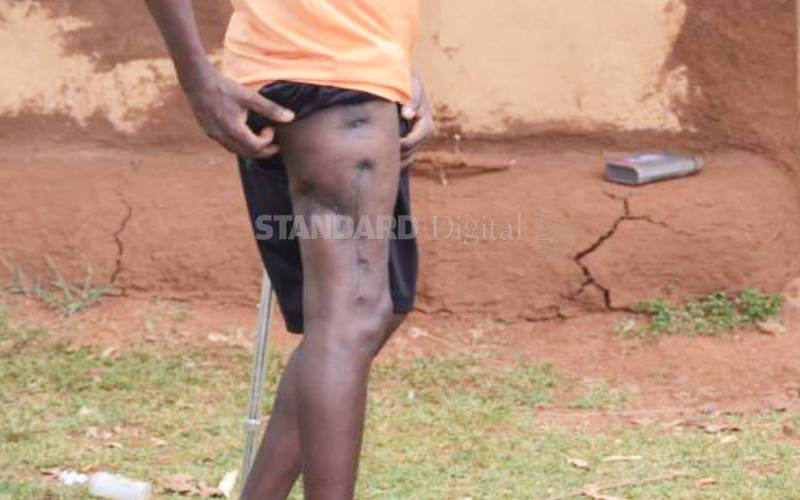×
The Standard e-Paper
Home To Bold Columnists

PEV survivor David Otieno Obare at his home. [Kevine Omollo]
A rights group has shelved plans to sue the government on behalf of 2017 post-election violence victims in Nyanza.